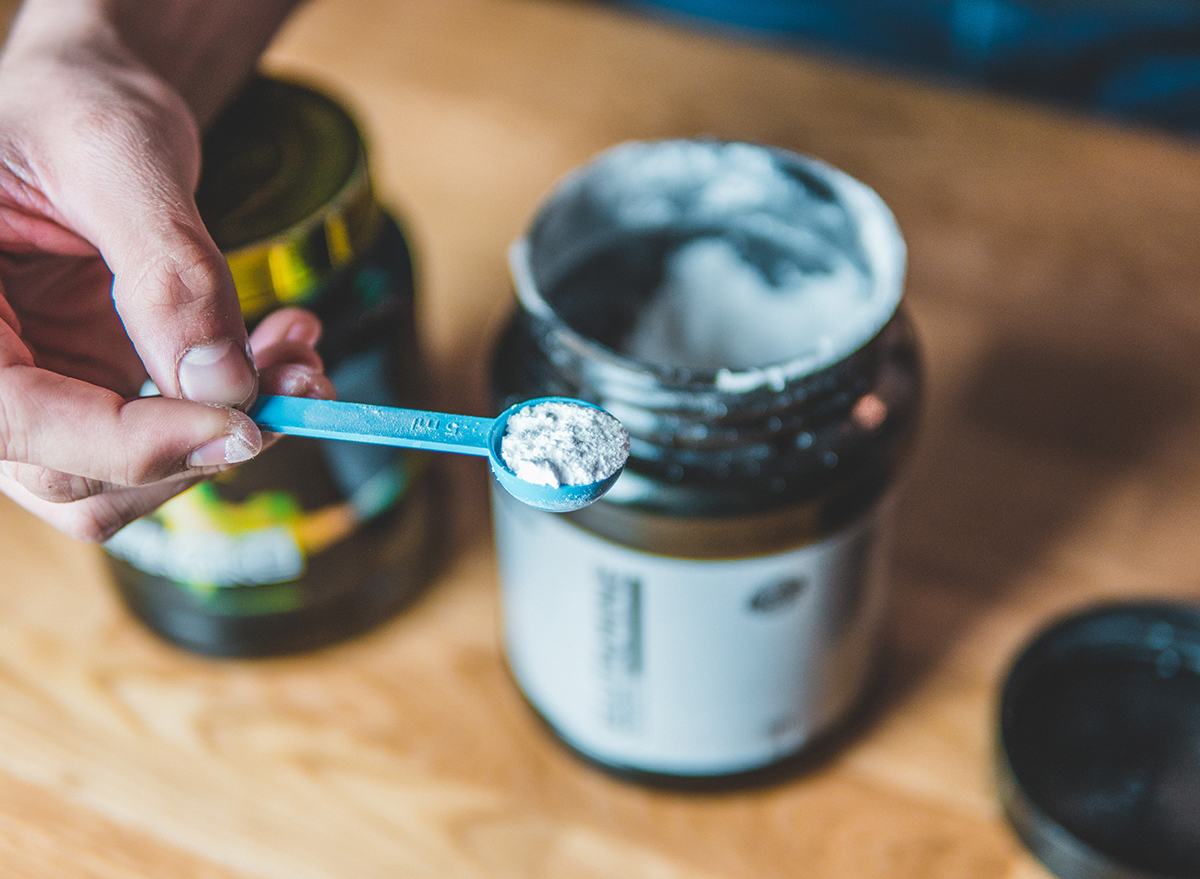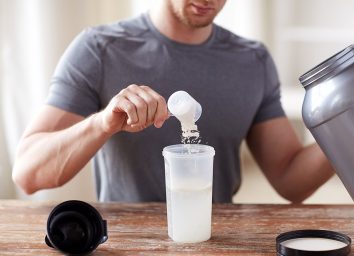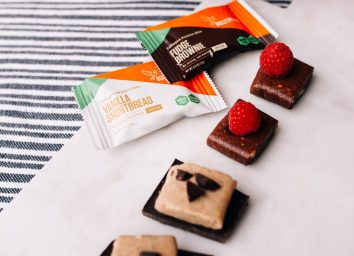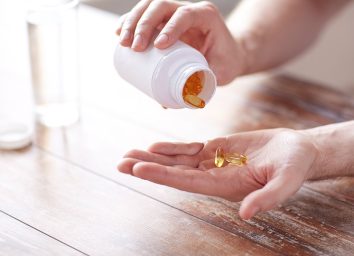Does Glutamine Actually Help Crush Your Sugar Cravings?

Sugar cravings can create a huge caveat for weight loss. And sugar addiction is a real thing. A couple of cookies after dinner can quickly spiral into eating sweets after every meal—every day. If you’re struggling to release yourself from sugar’s grasp, we may have a solution. Glutamine is a supplement that companies market as helping to reduce sugar cravings. But does it actually work? And does it have any side effects? We asked two dietitians for their thoughts on how glutamine is supposed to stop sugar cravings and whether it’s worth trying.
What causes sugar cravings?
Of course, there are multiple reasons for why you might be craving sweets.
- Eating sugar is a habit. “The memory part of our brains, the hippocampus, helps us to remember the taste of sweets and plays a role in reward-seeking behavior, which pushes us to look for more sugar,” says Tony Castillo, MS, RDN, LDN, registered dietitian nutritionist and nutrition consultant for RSP Nutrition. “Another part of our brains, caudate nucleus, is where habits are formed. So, if you typically eat chocolate after lunch, this will soon turn into a habit. Then, you will continue to look for sugar sweets at this time.”
- Our body links sugar consumption with “feel good” hormones. “When you eat sugar, your brain boosts the production of serotonin: the mood and appetite neurotransmitter. This results in that happy feeling when you have sugar, and your brain wants you to be happy,” says Castillo.
- You don’t eat enough non-carbohydrate macronutrients. “Protein, fiber, and fat slow the release of sugar in your blood, which can help maintain your energy level”, says Castillo. “Not consuming enough protein, fiber, and fat can cause peaks in your energy, which may cause you to reach for a sweet boost.”
- You eat too many carbs. “Cravings for sweets can occur when insulin levels are high (like after a large meal of pasta),” says Julie Stefanski, RDN, LDN, CDE, a registered dietitian nutritionist and spokesperson for the Academy of Nutrition & Dietetics.
- You don’t drink enough water. “It’s also common for people to crave sugar when they’re actually dehydrated and in need of a nice big glass of water,” says Stefanski. This is because a lack of water makes it more difficult for your body to metabolize glycogen (aka glucose your body uses for energy). So your body craves sugar for a quick boost of energy when it really just needs water.
If you struggle with sugar cravings, you may be looking for any way to keep them at bay, and glutamine may help.
What is glutamine?
“Glutamine is one of the 20 amino acids in dietary protein,” says Castillo. “Glutamine is part of protein that is involved in intestinal health and your immune system.”
There are two forms of glutamine: L-glutamine and D-glutamine. L-Glutamine is the form found in food, supplements and in our bodies. Foods high in glutamine include dairy and meat products and foods high in protein. Glutamine supplements on the market typically range from $10-$40.
If you’re healthy, your body naturally should make enough of it on its own.
“Glutamine is a conditionally essential amino acid, which means your body makes it naturally unless you are recovering from an injury or illness,” says Castillo.
How does it help with sugar cravings?
The theory behind why glutamine may banish sugar cravings is based on how it functions in your body.
“One of the theories behind why people may think L-glutamine may work for sugar cravings is because it is an amino acid, meaning it is a protein building block. Protein is typically a macronutrient that keeps us full longer. We also know protein helps lower blood sugar levels,” says Castillo. In fact, one study on type 2 diabetes found that those taking 30 grams of glutamine reported reduced blood glucose levels.
“The theory is having the amino acid may help lower cravings because you feel fuller for a longer period of time and may skip the sugar for a meal,” says Castillo.
However, there isn’t any research to back it up.
“Unfortunately these claims are simply based on theories about glutamine metabolism and not actual research. There is no strong evidence in research on humans that glutamine can eliminate cravings,” says Stefanski.
What are the benefits of taking glutamine?
L-glutamine has been studied as a helpful supplement for people with irritable bowel syndrome and also has been studied to improve healing after surgery and trauma.
“Typically, the times we see the benefits of supplementing glutamine in your diet are during times of recovery from injury or illness. Remember that the body does produce the amino acid naturally, and you may not need to consume it as a supplement,” says Castillo.
Are there any side effects of taking glutamine?
If you’re healthy, there’s not likely to be any side effects from the glutamine itself. However, those with kidney and liver disease shouldn’t use glutamine, according to the Mayo Clinic.
“Currently there are no known side effects of taking glutamine at levels as high as 14 grams a day in a supplemental form,” says Castillo.
Common side effects of taking glutamine can include nausea, vomiting, headaches and joint pain.
Bottom line: is glutamine worth it to prevent sugar cravings?
Because there’s no research to back it up, it’s up to you whether you want to spend money to use glutamine.
“If you’re a healthy individual who consumes enough protein, you’re likely not glutamine deficient,” says Stefanski. “With a response such as cravings, each person will interpret their symptoms differently. If someone strongly believes that a supplement will help, the placebo effect may kick in and affect their response. However, there may be other affordable options to induce a placebo effect on cravings.”
And Castillo agrees. “In my opinion, glutamine is not worth buying to fight off sugar cravings,” says Castillo. “The best thing to do is to create habits that will lead you to not have sugar cravings.”
If you are still interested in trying this supplement, be sure to consult your doctor first.
“It’s always important to discuss supplementation of any type with your physician or registered dietitian. You’ll want to make sure it doesn’t interact with any health conditions or medications,” says Stefanski.







